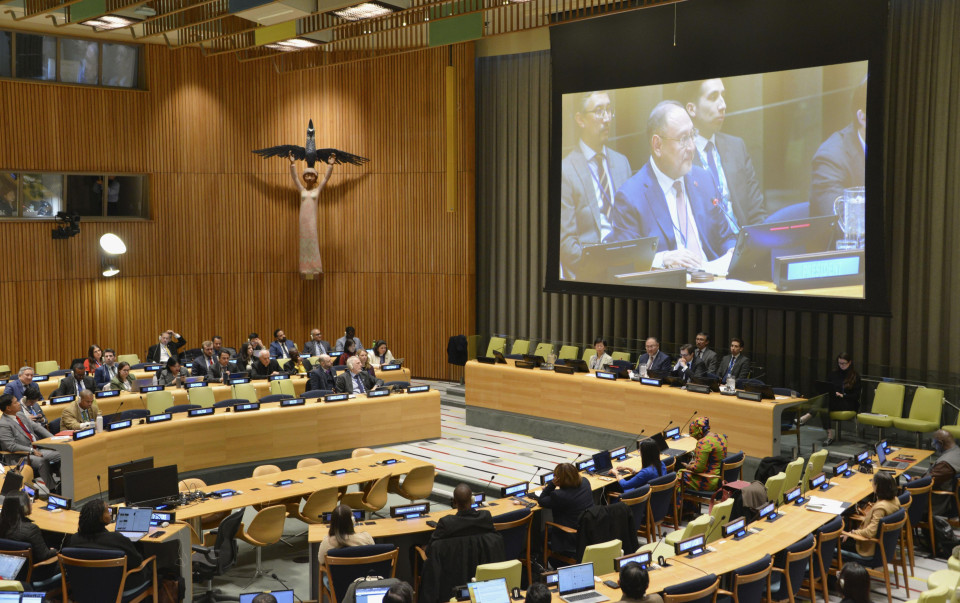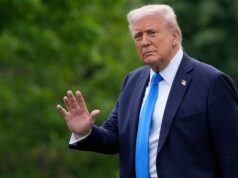Nuclear Non-Proliferation Treaty for any move forward has to recognize India

A meeting of the state parties to the Treaty on the Prohibition of Nuclear Weapons is held at the U.N. headquarters in New York on March 7, 2025
The Nuclear Non-Proliferation Treaty is the most biased and the most DOUBLE STANDARD treaty of the 20th Century. Though it is a well subscribed treaty under the UN on nuclear disarmament.
However the bias is obvious because though it recognizes Britain and France two relatively small powers as nuclear weapon states along with Russia, China and the United States as the five nuclear weapons states.
Strangely the toothless biased treaty does not recognize India as a nuclear weapons state though now it is in the same league as Russia, China and USA. India is also the world’s most populous country.
It was India which had first proposed elimination of all nuclear weapons but when the five existing nuclear powers refused then India just refused to sign the Nuclear Non Proliferation Treaty because it is not based on equality.
Thereafter in spite of all oppositions it developed its nuclear arsenal and now has full second strike capability.
In the wake of heightened geopolitical tensions and crises such as Ukraine conflict, the declaration said that nuclear arms races and the growing danger of more countries getting nuclear weapons demands “immediate and decisive action” from the rest of the world.
However the declaration did not mention that China- India are two heavily nuclear armed nation facing each other in a highly tensed scenario.
Even Pakistan us a nuclear armed nation, threatening India now and then.
Japan the only country which has suffered two nuclear strikes from USA now relies on the U.S. nuclear umbrella itself for its deterrence and so did not send observers to any of the three nuclear weapons ban treaty meetings.
Though Hidankyo, or the Japan Confederation of A- and H-Bomb Sufferers Organizations, urged the Japanese government to participate in this year’s meeting as an observer.
Though the states parties of a U.N. nuclear weapons ban treaty on Friday adopted a declaration affirming the existential threat nuclear weapons pose to humanity and pursuing the eradication of such weapons.
The members also agreed to hold in late 2026 their first conference aimed at reviewing the implementation of the Treaty on the Prohibition of Nuclear Weapons, which took effect in 2021.
The declaration, which affirms the parties’ “unwavering determination to address the existential threat that nuclear weapons pose to humanity,” was adopted at the end of the members’ third meeting in New York.
The pact requires its member countries to abandon nuclear deterrence and none of the five recognized nuclear weapons states have acceded to it.
Unlike the two previous meetings of the signatories in 2022 and 2023, no NATO countries sent observers to the latest round which lasted for five days at the U.N. headquarters.
As a reason for the absence, some NATO countries said the alliance has criticized and rejected the treaty and should stick to that position together.
“We cannot reach the elimination of nuclear weapons over the week, but we have given additional impetus to the activities” for the goal, Akan Rakhmetullin, deputy foreign minister of Kazakhstan, who chaired the meeting, said in an interview at the end of the conference.
The treaty entered into force among its ratifiers, currently at 73, in January 2021 after being endorsed by 122 parties in 2017.
With the New START nuclear arms control agreement between Russia and the United States set to expire next year, Friday’s declaration calls on the two states to “urgently engage in negotiations” to conclude a successor agreement.
Australia, a U.S. ally that is not a member of the treaty, observed the proceedings through Friday, saying Canberra “shares the ambitions” of the pact’s members for a nuclear-free world and wanted to monitor the progress of the treaty.




